
The Timeless Charm of Al-Jadriya
Nestled along the banks of the Tigris River, Al-Jadriya is a vibrant and historical neighborhood in Baghdad, Iraq. This area combines rich history with modern amenities, making it a must-visit for travelers eager to experience the unique blend of old and new that characterizes Baghdad. Al-Jadriya is home to some of Baghdad's most significant landmarks. The University of Baghdad, one of the largest educational institutions in the Middle East, stands as a beacon of knowledge and cultural exchange. Nearby, the Al-Jadriya Bridge offers stunning views over the Tigris, especially at sunset, when the river and cityscape are bathed in a golden hue. Visitors will also find lush green spaces perfect for leisurely strolls or picnics. Al-Jadriya Lake is a tranquil spot where locals gather to relax, fish, or enjoy a boat ride. The neighborhood's lively markets and cafes provide an authentic taste of Iraqi daily life, with opportunities to sample traditional foods and shop for local crafts. For those interested in history, Al-Jadriya offers a gateway to understanding Baghdad's storied past. The nearby Al-Shaheed Monument, dedicated to the Iraqi soldiers who lost their lives in wars, is a poignant reminder of the resilience and strength of the Iraqi people.
Local tips in Al-Jadriya
- Visit the University of Baghdad campus to see beautiful architecture and gardens.
- Take a walk across the Al-Jadriya Bridge at sunset for breathtaking views.
- Spend an afternoon at Al-Jadriya Lake for a relaxing escape from the city bustle.
- Explore local markets for unique souvenirs and taste traditional Iraqi cuisine.
- Visit the Al-Shaheed Monument for a deeper understanding of Iraq’s history.
The Timeless Charm of Al-Jadriya
Nestled along the banks of the Tigris River, Al-Jadriya is a vibrant and historical neighborhood in Baghdad, Iraq. This area combines rich history with modern amenities, making it a must-visit for travelers eager to experience the unique blend of old and new that characterizes Baghdad. Al-Jadriya is home to some of Baghdad's most significant landmarks. The University of Baghdad, one of the largest educational institutions in the Middle East, stands as a beacon of knowledge and cultural exchange. Nearby, the Al-Jadriya Bridge offers stunning views over the Tigris, especially at sunset, when the river and cityscape are bathed in a golden hue. Visitors will also find lush green spaces perfect for leisurely strolls or picnics. Al-Jadriya Lake is a tranquil spot where locals gather to relax, fish, or enjoy a boat ride. The neighborhood's lively markets and cafes provide an authentic taste of Iraqi daily life, with opportunities to sample traditional foods and shop for local crafts. For those interested in history, Al-Jadriya offers a gateway to understanding Baghdad's storied past. The nearby Al-Shaheed Monument, dedicated to the Iraqi soldiers who lost their lives in wars, is a poignant reminder of the resilience and strength of the Iraqi people.
Iconic landmarks you can’t miss
Jadriya Bridge
Experience Baghdad's modern life and stunning Tigris River views from the iconic Jadriya Bridge, a vital link connecting the city.
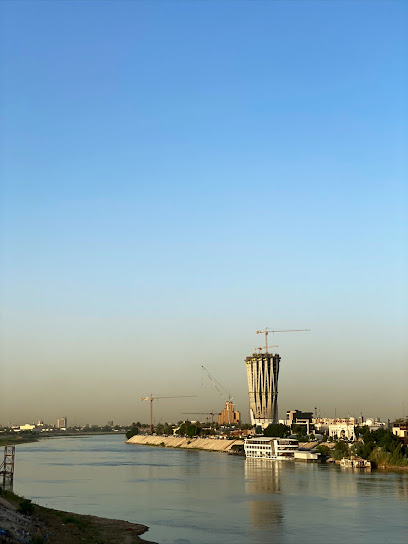
Martyr Monument
A poignant Baghdad landmark honoring Iraq's fallen heroes, featuring a striking turquoise dome and tranquil memorial gardens.
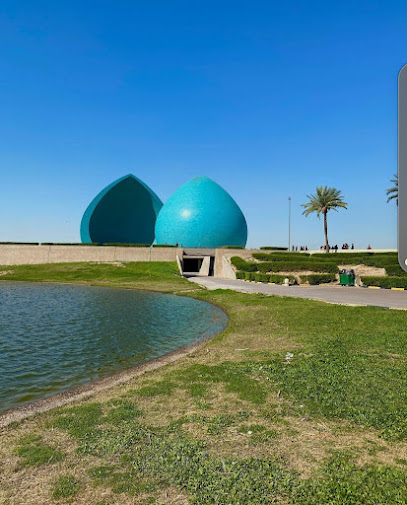
Saving Iraqi Culture Monument
A symbol of resilience and cultural preservation in Baghdad, honoring Iraq's rich heritage and the enduring spirit of its people.
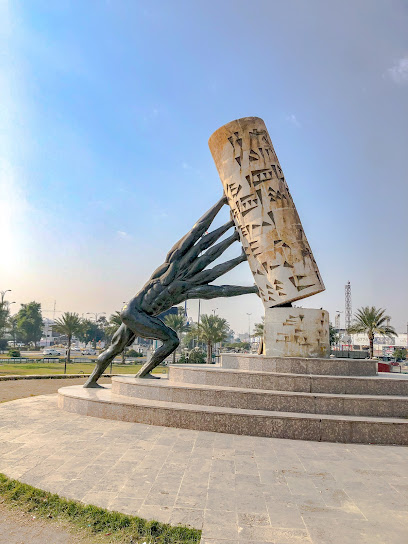
Tahrir Monument
A powerful symbol of Iraq's independence and resilience, the Tahrir Monument stands as a testament to the nation's journey towards freedom.
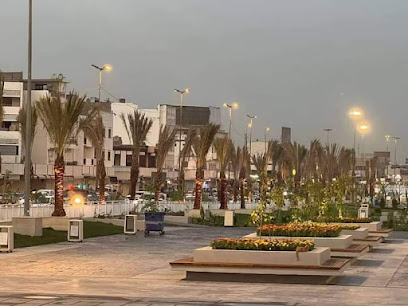
Unknown Soldier Monument
A poignant Baghdad landmark honoring Iraq's fallen soldiers, featuring unique architecture and an underground museum. A place for reflection and remembrance.
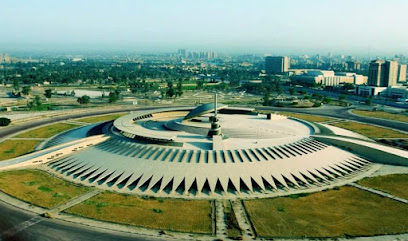
Victory Arch
Explore the Victory Arch in Baghdad, a monumental reminder of Iraq's strength and a controversial symbol of its past.
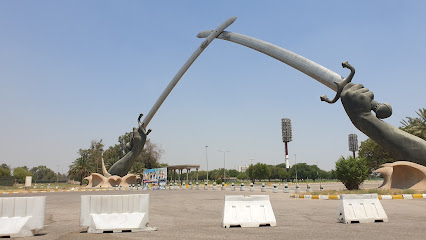
Al-Salam Palace
Explore Al-Salam Palace in Baghdad, a landmark of Iraqi history, architecture, and resilience, reflecting the nation's journey towards peace.
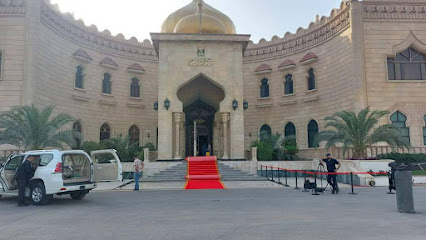
Baghdad Clock
Discover the iconic Baghdad Clock, a historical landmark embodying the city's cultural heritage and resilience, located near the Green Zone.
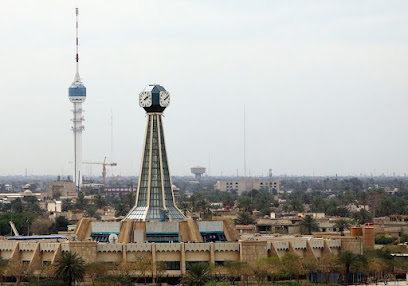
Corniche of the Assyrians
Experience Baghdad's serene riverside promenade, blending nature, culture, and Assyrian history along the Tigris.
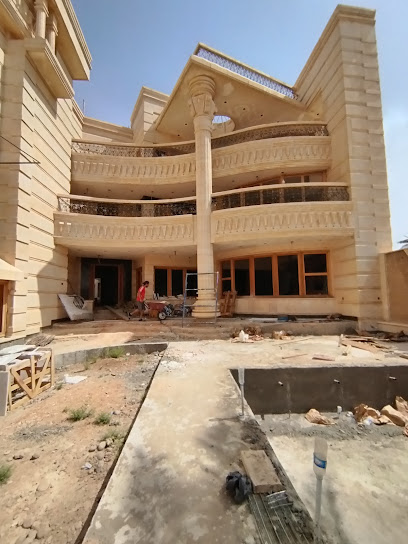
Remains of Talsam gate
Explore the historic Remains of Talsam Gate in Baghdad, a landmark echoing tales of ancient civilization and architectural brilliance.
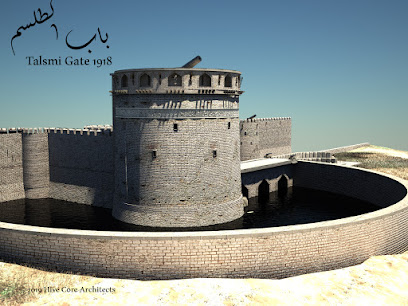
نصب الجرار
A six-meter-tall monument in Baghdad's Alawi district, created by Miran al-Saadi, symbolizing the historical importance of water jars in Iraqi culture.
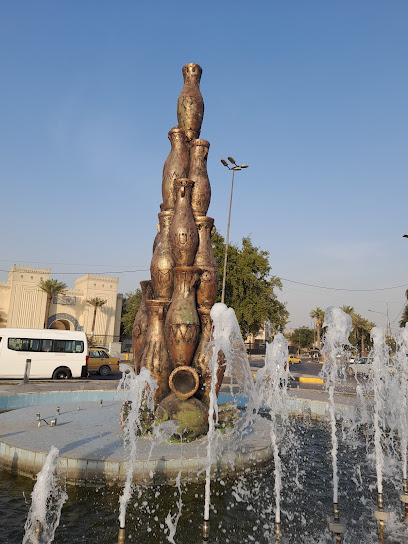
Al-jadriah garden
Discover tranquility in Baghdad at Al-Jadriah Garden, a beautiful escape with lush greenery, vibrant flowers, and serene pathways for all to enjoy.
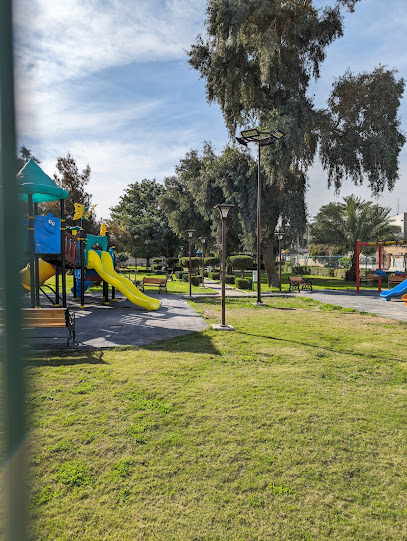
Jadiriyah Gardens
Explore the tranquility of Jadiriyah Gardens, a lush park in Baghdad perfect for relaxation, family outings, and experiencing local culture amidst nature.
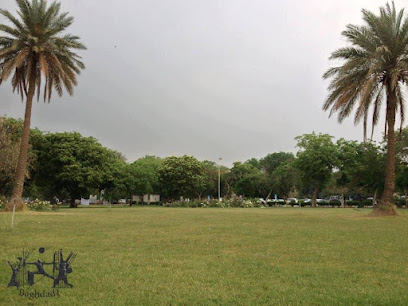
Dijla river jadriya sitting
Relax by the Tigris River at Dijla River Jadriya Sitting, a peaceful park in Baghdad's historic Al-Jadriya neighborhood.

Unmissable attractions to see
Victory Arch
A striking Baghdad landmark commemorating the Iran-Iraq War, symbolizing strength and resilience with its colossal crossed swords.
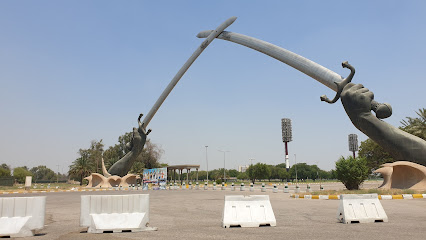
بغداد الجادرية
Escape to Baghdad's Al-Jadriyah Garden: A serene oasis offering tranquility and natural beauty in the heart of the city.
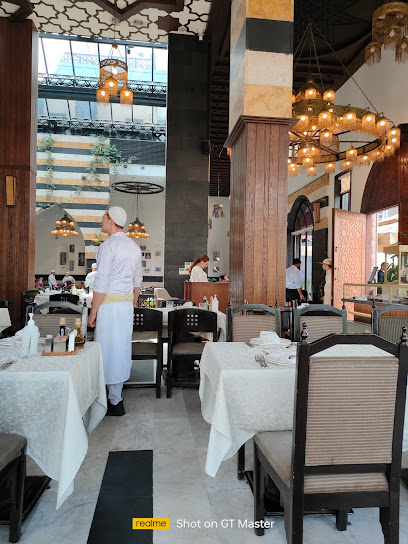
Al-jadriah garden
Discover Al-Jadriah Garden in Baghdad: a serene escape with lush greenery, vibrant flowers, and peaceful pathways for relaxation and recreation.
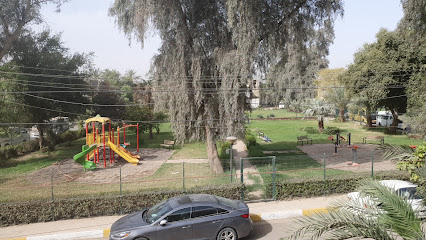
نهر دجلة
Discover the Tigris River in Baghdad: a journey through history, culture, and the heart of Iraq.

نصب ١٤ تموز
A landmark commemorating Iraq's 1958 revolution, symbolizing freedom and national identity in the heart of Baghdad.
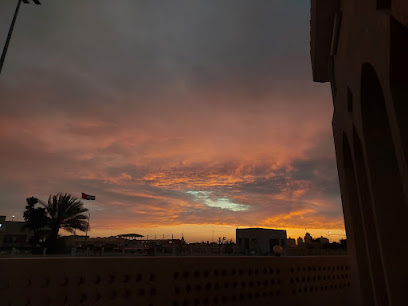
كوكو
Discover Koko in Baghdad: Immerse yourself in local culture, history, and the welcoming spirit of this hidden gem in the Dora district.

Essential places to dine
Chili House
Discover authentic Iraqi cuisine at Chili House, where mouthwatering chicken dishes meet vibrant atmosphere in Baghdad.
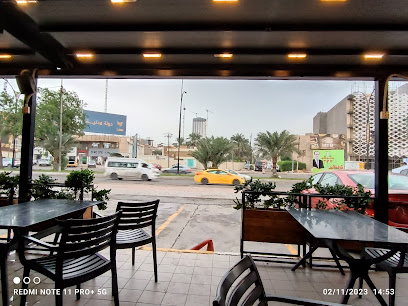
Jadiriyah Floating Restaurant
Discover exquisite dining at Jadiriyah Floating Restaurant in Baghdad—where local flavors meet stunning river views.
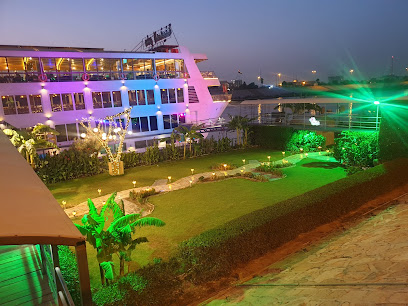
Azkadenya Restaurant
Experience authentic Turkish flavors at Azkadenya Restaurant in Baghdad's Jadriyah district - where every meal tells a story.
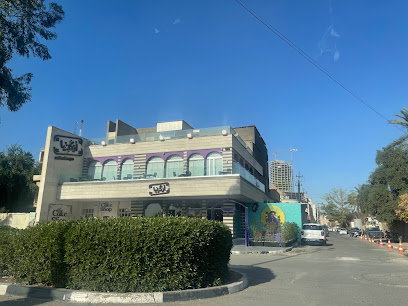
Dawa Baghdad
Experience authentic Iraqi cuisine at Dawa Baghdad, where tradition meets riverside elegance for an unforgettable dining experience.
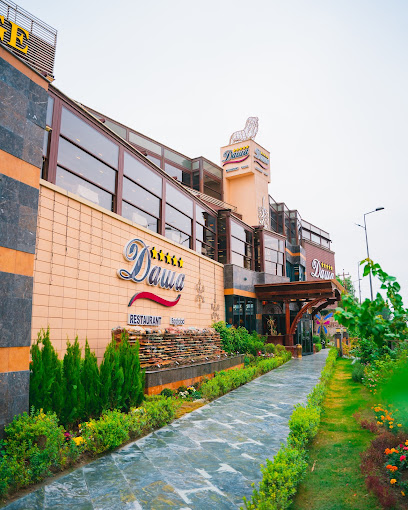
Al-Jadriya Restaurant and Gardens
Discover authentic Iraqi flavors in a serene garden setting at Al-Jadriya Restaurant and Gardens - your culinary oasis in Baghdad.
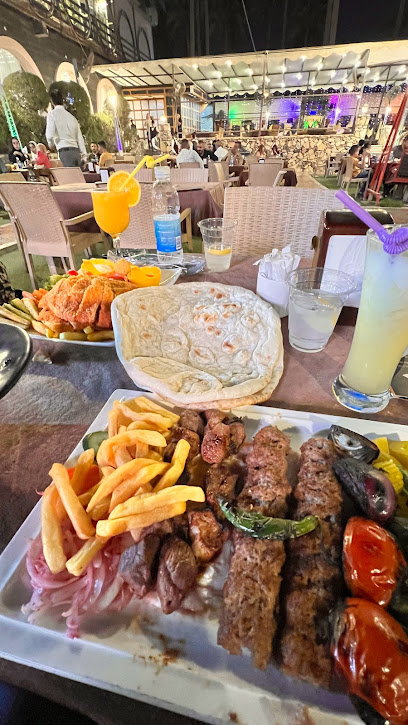
Babylon Village
Discover authentic Iraqi cuisine at Babylon Village - where exquisite flavors meet warm hospitality in the heart of Baghdad.
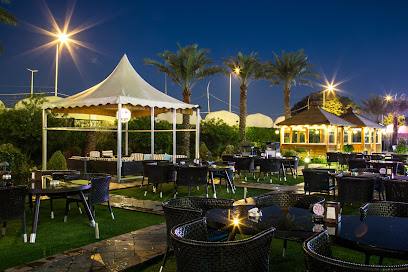
Sinnara Restaurant
Discover family-friendly dining at Sinnara Restaurant in Baghdad, where local flavors meet warm hospitality for an unforgettable meal.
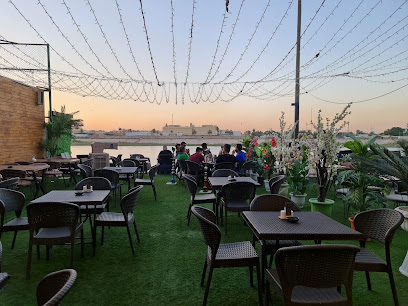
Noor aldeen Restaurant & Cafe
Experience authentic Iraqi cuisine at Noor aldeen Restaurant & Cafe in Baghdad—where tradition meets taste.
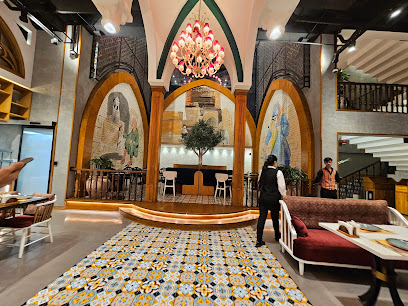
Al Shorfa Lounge
Discover Al Shorfa Lounge at Babylon Rotana for an exquisite dining experience featuring local flavors in a luxurious setting.
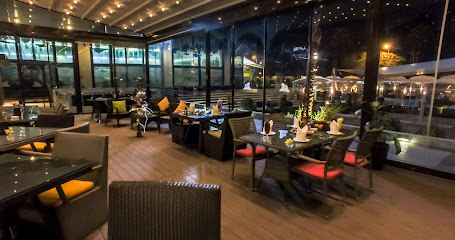
Shanashil Restaurant
Experience authentic Iraqi cuisine at Shanashil Restaurant within Babylon Rotana - where tradition meets modern dining in Baghdad.
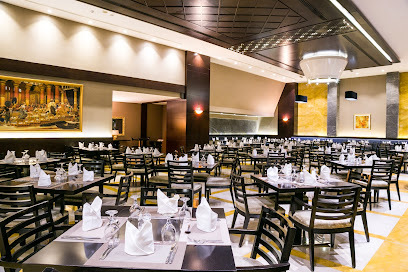
Markets, malls and hidden boutiques
Cinnabon Al-Jadriya - سينابون الجادرية
Discover the irresistible flavors of Cinnabon Al-Jadriya, where every bite of cinnamon roll brings a taste of sweetness in Baghdad.
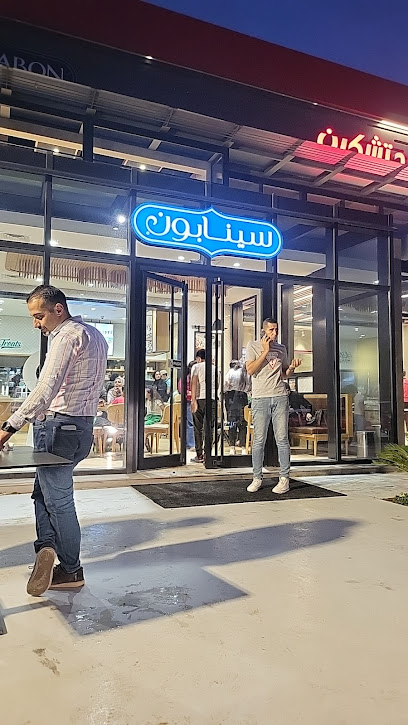
Al Jadrieh Mall
Explore Al Jadrieh Mall in Baghdad for a unique shopping and dining experience with a blend of modern and traditional culture.
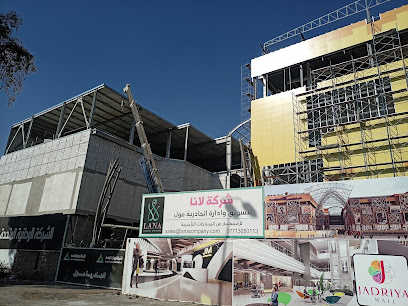
الجادرية سنتر لهواتف النقالة
Explore cutting-edge mobile technology at الجادرية سنتر لهواتف النقالة, Baghdad's leading electronics hub for tech enthusiasts and casual buyers.
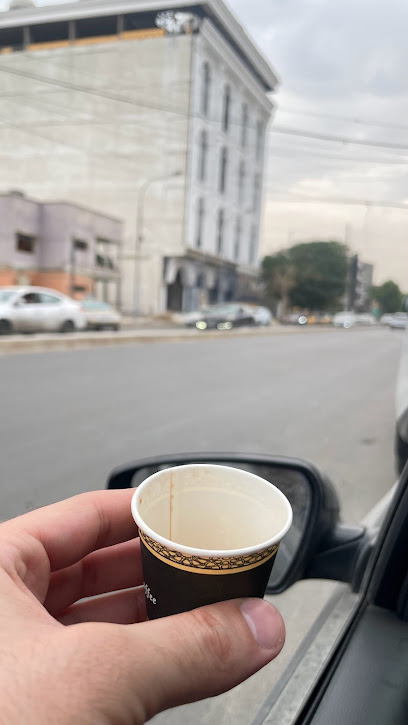
UOT STORE
Explore UOT STORE in Baghdad for unique gifts and fashionable accessories that capture the spirit of Iraqi culture.
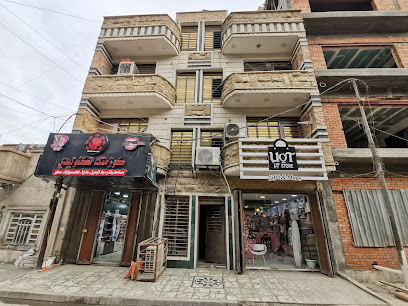
Kado gift shop
Explore Kado Gift Shop in Baghdad for unique Iraqi souvenirs, handcrafted treasures, and memorable gifts that reflect the rich local culture.
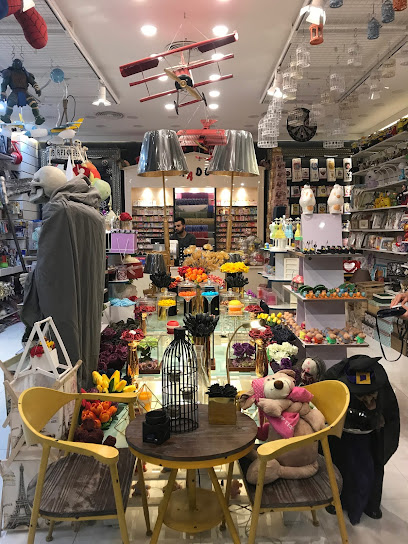
Offside
Discover Offside, a unique coffee shop in Baghdad's Jadriyah, offering a cozy atmosphere and exquisite coffee blends for an unforgettable experience.
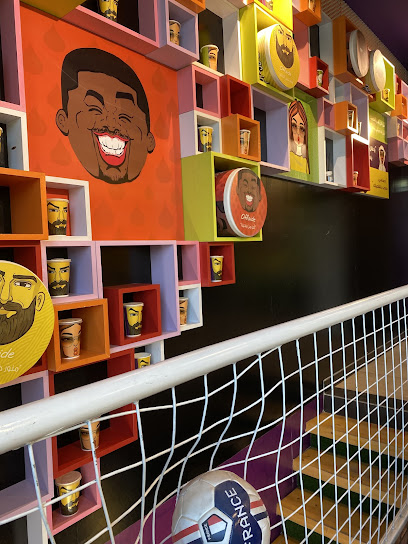
Al jadriya
Explore Al Jadriya, Baghdad's vibrant home goods shopping district, where tradition meets modernity along the scenic Tigris River.
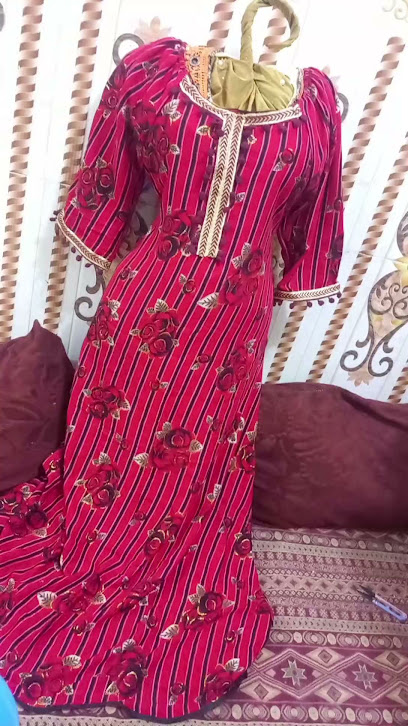
ناي ستور Nay Store
Discover Nay Store in Baghdad, the ultimate sheepskin coat destination, blending tradition and style in every handcrafted piece.
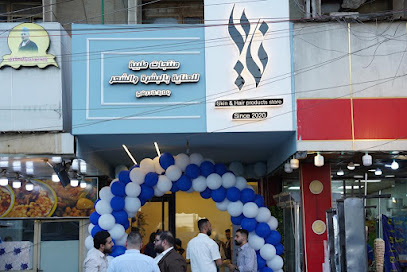
VILLARI - Baghdad
Discover VILLARI in Baghdad, a boutique that blends traditional craftsmanship with modern elegance, offering unique fashion and accessories.
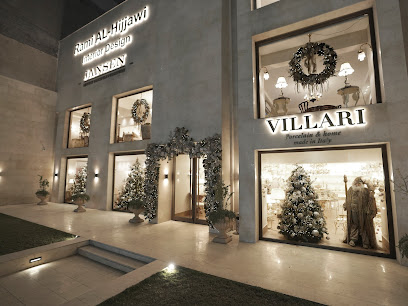
مكتبة A4
Explore مكتبة A4 in Baghdad for unique gifts and handcrafted treasures that showcase the rich culture and artistry of Iraq.

Essential bars & hidden hideouts
Irish pub
Discover the vibrant spirit of an Irish pub in Baghdad, where tradition meets local culture and unforgettable memories are made.
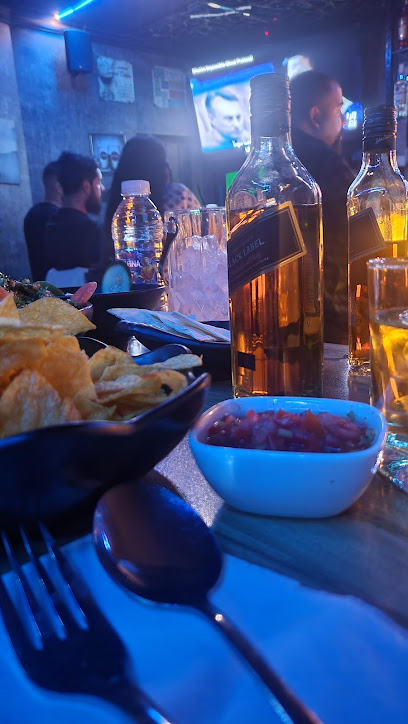
Sky Lounge
Experience upscale dining with breathtaking views at Sky Lounge in Baghdad, where local flavors blend with international cuisine.
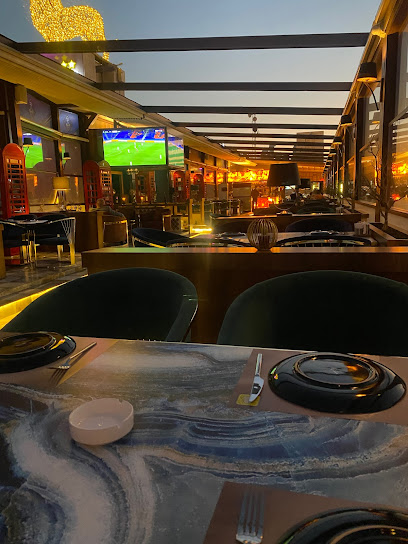
D lounge & Restaurant
Experience the vibrant nightlife at D Lounge & Restaurant in Baghdad, where local flavors meet international drinks in a lively atmosphere.
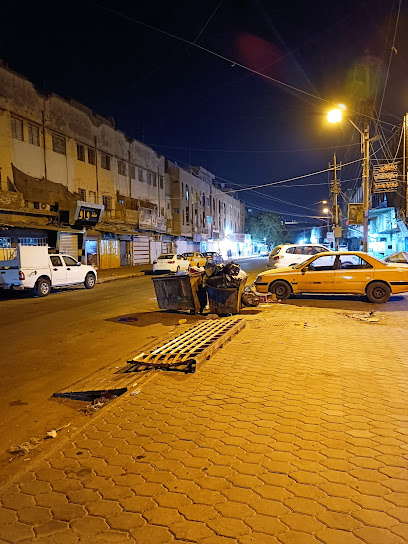
Lumana
Experience the vibrant nightlife of Baghdad at Lumana, a lively bar offering a diverse selection of drinks and a welcoming atmosphere.
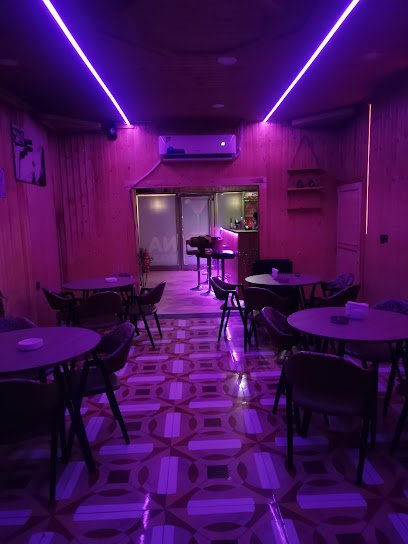
Solo bar
Discover the lively nightlife of Baghdad at Solo Bar—a perfect blend of culture, drinks, and social atmosphere.
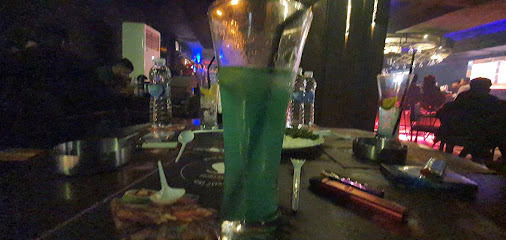
Beirut Bar
Explore the lively atmosphere of Beirut Bar in Baghdad, where unique cocktails and local charm create an unforgettable nightlife experience.
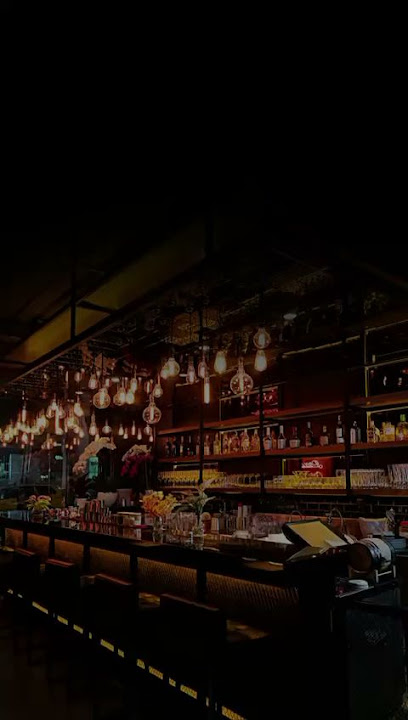
كراج الجزيرة السياحية
Experience the vibrant nightlife of Baghdad at Karrag Al-Jazeera, where local flavors and great drinks come together in a picturesque riverside setting.
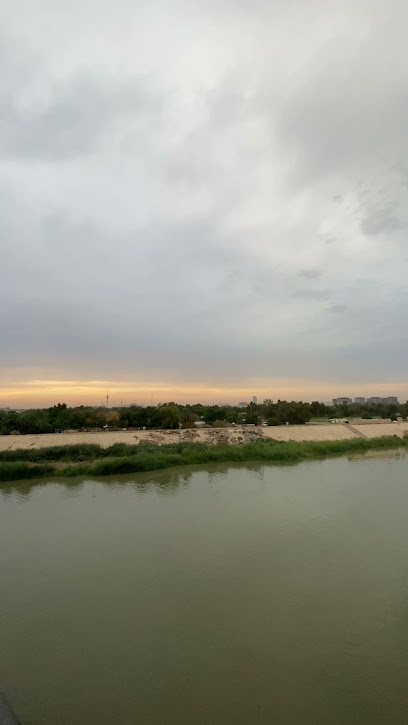
بغداد
Experience the vibrant nightlife of Baghdad, where traditional hospitality meets modern bar culture in an unforgettable atmosphere.

مقهى
Experience the vibrant café culture of Baghdad, blending tradition and modernity with every sip.

٧٨
Experience the vibrant nightlife of Baghdad at this local bar, where tradition meets modern entertainment in a welcoming atmosphere.

Local Phrases
-
- Helloمرحبا
[Marhaba] - Goodbyeوداعا
[Wada'an] - Yesنعم
[Naam] - Noلا
[La] - Please/You're welcomeمن فضلك
[Min fadlik] - Thank youشكرا لك
[Shukran lak] - Excuse me/Sorryعذرا
[Aadhran] - How are you?كيف حالك؟
[Kayfa halak?] - Fine. And you?بخير. وأنت؟
[Bekhair. Wa ant?] - Do you speak English?هل تتحدث الإنجليزية؟
[Hal tatahadath al'injlizia?] - I don't understandأنا لا أفهم
[Ana la afham]
- Helloمرحبا
-
- I'd like to see the menu, pleaseأريد أن أرى القائمة، من فضلك
[Aridu an ara alqaimah, min fadlik] - I don't eat meatأنا لا آكل اللحم
[Ana la aakul allahm] - Cheers!في صحتك!
[Fi sahtak!] - I would like to pay, pleaseأريد أن أدفع، من فضلك
[Aridu an adfa', min fadlik]
- I'd like to see the menu, pleaseأريد أن أرى القائمة، من فضلك
-
- Help!النجدة!
[Alnajdah!] - Go away!انصرف!
[Anstarif!] - Call the Police!اتصل بالشرطة!
[Aatsil bialshurta!] - Call a doctor!اتصل بالطبيب!
[Aatsil bialtabib!] - I'm lostلقد ضللت الطريق
[Laqad dalalt altariq] - I'm illأنا مريض
[Ana mareed]
- Help!النجدة!
-
- I'd like to buy...أريد أن أشتري...
[Aridu an ashtari...] - I'm just lookingأنا فقط أتفرج
[Ana faqat atfarij] - How much is it?كم سعره؟
[Kam siroh?] - That's too expensiveهذا غالي جدا
[Hatha ghali jiddan] - Can you lower the price?هل يمكنك خفض السعر؟
[Hal yumkinuk khafdh alsir?]
- I'd like to buy...أريد أن أشتري...
-
- What time is it?كم الساعة؟
[Kam alsaa'a?] - It's one o'clockالساعة الواحدة
[Alssaa'ah alwahidah] - Half past (10)الساعة والنصف (عشرة)
[Alssaa'ah walnisf ('ashrah)] - Morningالصباح
[Alsubah] - Afternoonالعصر
[Al'asr] - Eveningالمساء
[Almasa'] - Yesterdayأمس
[Ams] - Todayاليوم
[Alyawm] - Tomorrowغدا
[Ghadan] - 1واحد
[Wahid] - 2اثنان
[Ithnan] - 3ثلاثة
[Thalatha] - 4أربعة
[Arba'a] - 5خمسة
[Khamsa] - 6ستة
[Sitta] - 7سبعة
[Sab'a] - 8ثمانية
[Thamania] - 9تسعة
[Tasia] - 10عشرة
['ashrah]
- What time is it?كم الساعة؟
-
- Where's a/the...?أين...
[Ayna...] - What's the address?ما هو العنوان؟
[Ma huwa al'uanan?] - Can you show me (on the map)?هل يمكنك إظهار لي (على الخريطة)؟
[Hal yumkinuk 'iizhar li (ealaa alkhariitah)?] - When's the next (bus)?متى يأتي الحافلة التالية؟
[Mata yati alhafilat altaliat?] - A ticket (to ....)تذكرة (إلى ....)
[Tazkirah (ila ....)]
- Where's a/the...?أين...
History of Al-Jadriya
-
Al-Jadriya, situated along the banks of the Tigris River, was significantly influenced by the Abbasid Caliphate during the 8th and 9th centuries. As Baghdad flourished as a major center of trade, culture, and learning, Al-Jadriya became a favored location for the affluent and intellectual elite, leading to the establishment of luxurious residences and gardens. The architectural style of this era is reflected in the neighborhoods' layout and design, embodying the grandeur of Islamic architecture.
-
During the medieval period, Al-Jadriya served as a site for many cultural and scholarly activities. The proximity to Baghdad allowed for the exchange of ideas and artistic expressions among poets, philosophers, and scientists, contributing to what is often referred to as the Islamic Golden Age. The area became a hub for literature and science, with various institutions that fostered intellectual growth.
-
In the 20th century, particularly after the establishment of the Iraqi monarchy in 1921, Al-Jadriya experienced significant urbanization and development. The construction of new residential areas and the establishment of educational institutions transformed the neighborhood. Notable landmarks, including the Al-Jadriya Bridge, were developed during this period, enhancing connectivity to the broader Baghdad area.
-
The 2003 Iraq War brought considerable turmoil to Baghdad, including Al-Jadriya. The neighborhood, once a symbol of cultural richness, faced challenges such as displacement and damage to its infrastructure. Despite these difficulties, Al-Jadriya has shown resilience, with community efforts aimed at rebuilding and revitalizing the area, preserving its historical essence amid the changing landscape.
-
Today, Al-Jadriya is known for its vibrant cultural scene, hosting various festivals and events that celebrate Iraqi heritage. The area's rich history is reflected in its architecture, parks, and public spaces, making it an important locale for both residents and visitors. The presence of universities and cultural institutions continues to foster a spirit of learning and creativity in the neighborhood.
Al-Jadriya Essentials
-
Al-Jadriya is accessible from various neighborhoods within Baghdad. Taxis are the most common mode of transport and can be found throughout the city. Public minibuses operate from central areas like Al-Mansour and Al-Kadhimiya, typically costing a low fare. If you're coming from Baghdad International Airport, a taxi ride to Al-Jadriya takes around 30 minutes, depending on traffic.
-
Al-Jadriya is relatively small and can be explored on foot. For longer distances, taxis are widely available and inexpensive. Public buses do operate, but they may not be the most comfortable or reliable option for tourists. Bicycles can be rented in some local shops, providing an alternative way to explore the area.
-
Al-Jadriya is generally considered safe, but tourists should remain vigilant, especially in crowded areas. Avoiding certain neighborhoods during nighttime is advisable. Areas like Al-Sadr City and Al-Adhamiya have higher crime rates and should be approached with caution. Always be aware of your surroundings and secure your belongings.
-
In case of an emergency, dial 112 for police assistance or 123 for medical emergencies. It’s advisable to have local emergency numbers saved on your phone. Familiarize yourself with the location of the nearest hospital in Al-Jadriya, such as the Baghdad Medical City, for any medical needs.
-
Fashion: Do dress conservatively, especially in public spaces. Avoid shorts and sleeveless tops. Religion: Do respect local customs, especially when visiting mosques. Men should wear long trousers, and women should cover their hair. Public Transport: Do be courteous and offer your seat to the elderly. Don't eat or drink on public transportation. Greetings: Do greet locals with a smile and a handshake. Eating & Drinking: Do try local foods and accept invitations to share meals. Don’t refuse food or drink, as it may offend your host.
-
To experience Al-Jadriya like a local, visit the riverside parks for a leisurely stroll or picnic. Engage with the locals who are often welcoming and eager to share their stories. Explore local markets for fresh produce and traditional Iraqi dishes. Don’t miss the opportunity to visit the iconic Al-Jadriya Bridge, which offers stunning views, especially at sunset.
Trending Landmarks in Al-Jadriya
Nearby Cities to Al-Jadriya
-
Things To Do in Karbala
-
Things To Do in Najaf
-
Things To Do in Kirkuk
-
Things To Do in Sulaymaniyah
-
Things To Do in Amara
-
Things To Do in Erbil
-
Things To Do in Mosul
-
Things To Do in Arar
-
Things To Do in Dohuk
-
Things To Do in Basra
-
Things To Do in Jahra
-
Things To Do in Kuwait City
-
Things To Do in Sakakah
-
Things To Do in Hawalli
-
Things To Do in Farwaniya




